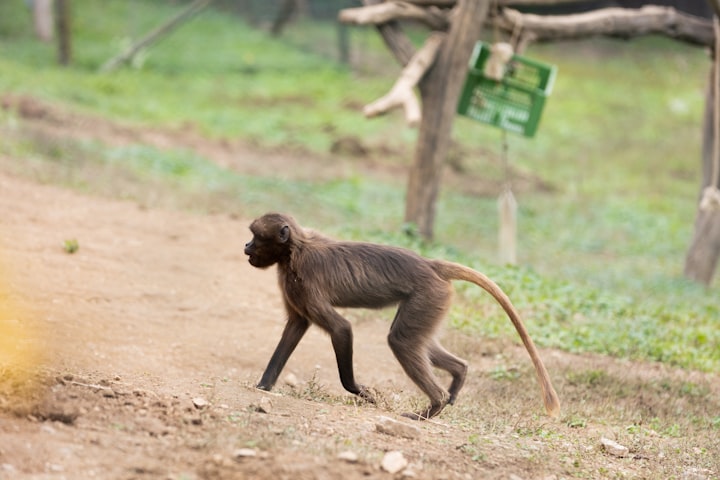
Chimpanzees: Our Closest Living Relatives
Chimpanzees are a species of great apes that are closely related to humans, sharing about 98% of our DNA. They are native to the forests and savannas of central and west Africa, and are divided into two subspecies: the common chimpanzee (Pan troglodytes) and the bonobo (Pan paniscus). Chimpanzees are highly social animals that live in communities led by alpha males, and have a complex culture that includes the use of tools, language, and even warfare.
Physical Characteristics
Chimpanzees are one of the largest primates, with males weighing up to 150 pounds and standing up to 5 feet tall. They have a muscular body covered in black or brown hair, with a hairless face and hands. Chimpanzees have long arms and a short, bowed leg structure that allows them to move around easily on all fours or walk upright. Their hands are dexterous and have opposable thumbs, allowing them to grasp objects and manipulate tools.
Behavior and Social Structure
Chimpanzees are highly social animals that live in communities ranging from a few individuals to several dozen. Their social structure is led by an alpha male who maintains his status through displays of dominance and aggression towards other males. Females also have a hierarchy, but it is less pronounced than that of males.
Chimpanzees communicate with a range of vocalizations, facial expressions, and body postures. They also use tools in their daily activities, such as using sticks to extract insects from tree bark or using rocks to crack open nuts. In some cases, they even use spears to hunt other primates.
Chimpanzees have a complex culture that includes the passing down of knowledge and skills from one generation to another. For example, certain communities have been observed using different techniques to extract insects from tree bark or cracking nuts, indicating that these behaviors are learned rather than innate.
Conservation Status
Chimpanzees are listed as endangered by the International Union for Conservation of Nature (IUCN) due to habitat loss, hunting, and disease. The populations of both subspecies have declined significantly over the past few decades, with some estimates suggesting that there may be as few as 170,000 chimpanzees left in the wild.
Efforts are being made to conserve chimpanzees through habitat protection, anti-poaching measures, and education programs. Many conservation organizations are also working with local communities to promote sustainable use of resources and reduce human-wildlife conflict.
Research and Ethics
Chimpanzees have been used in biomedical research for many years due to their genetic similarity to humans. However, this practice has become increasingly controversial, with many scientists arguing that it is unethical to use such intelligent and social animals in experiments that may cause pain or distress.
In response to these concerns, many countries have enacted laws limiting or prohibiting the use of chimpanzees in research. In the United States, the National Institutes of Health (NIH) announced in 2013 that it would no longer fund research on chimpanzees, and the last research chimpanzees were retired to sanctuaries in 2015.
Conclusion
In conclusion, chimpanzees are a fascinating species of great apes that are closely related to humans. They have a complex social structure, a sophisticated culture, and are capable of using tools and communicating with each other. However, their populations are under threat from a variety of factors, including habitat loss, hunting, and disease.
It is essential that we take action to conserve chimpanzees and their habitats, through measures such as habitat protection, anti-poaching measures, and education programs. It is also important that we consider the ethical implications of using chimpanzees in research and work towards developing alternative methods that do not involve animal experimentation.
Chimpanzees are not only a valuable species in their own right, but they also provide important insights into our own evolution and behavior. By studying chimpanzees, we can better understand our place in the natural world and how we can work to protect it for future generations.
About the Creator
Enjoyed the story? Support the Creator.
Subscribe for free to receive all their stories in your feed. You could also pledge your support or give them a one-off tip, letting them know you appreciate their work.






Comments
There are no comments for this story
Be the first to respond and start the conversation.